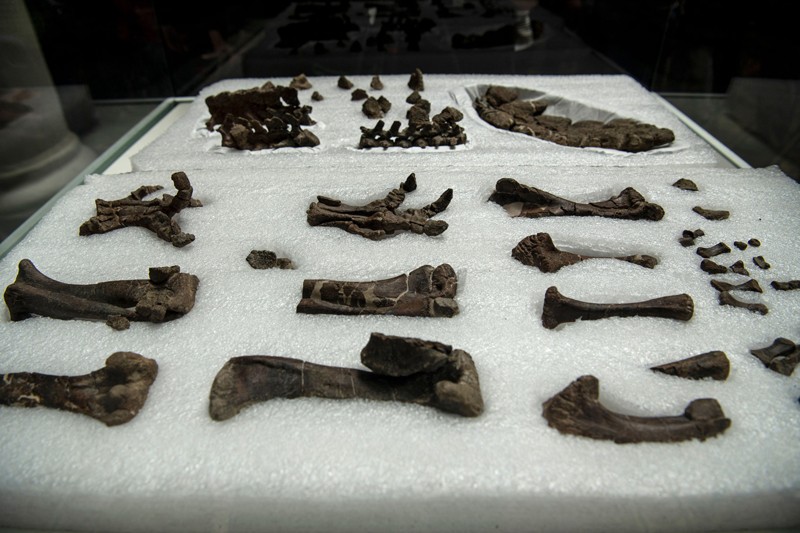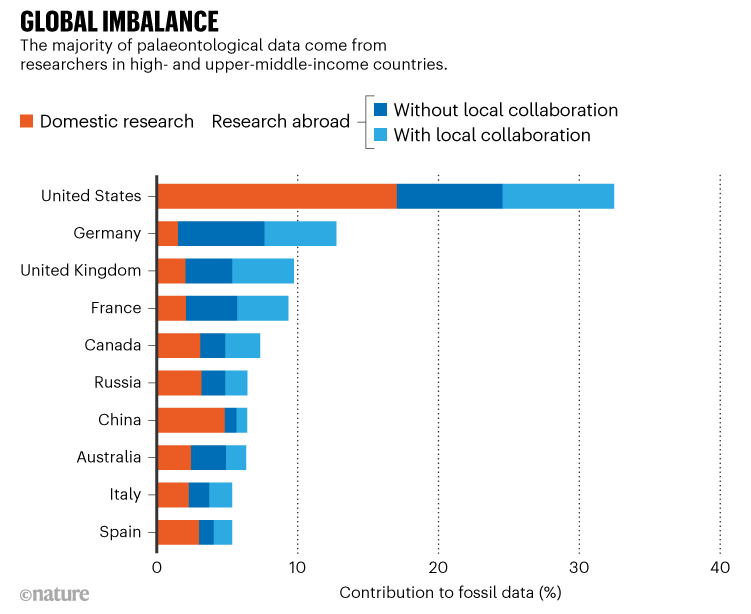Fossil record skewed by rich countries
Our understanding of the history of life on Earth is biased towards the views of wealthier countries, warns a study of the fossil record that found that a whopping 97% of palaeontological data come from scientists in high- and upper-middle-income countries (N. B. Raja et al. Nature Ecol. Evol. https://doi.org/hcrk; 2021).
“I knew it was going to be high, but I didn’t think it was going to be this high. It was astonishing,” says Nussaïbah Raja, a palaeontologist at the Friedrich Alexander University of Erlangen–Nuremberg in Erlangen, Germany, who co-led the study. Raja and colleagues analysed data from the Paleobiology Database (PBDB), a widely used repository. The team examined the authorship of 29,039 papers indexed in the PBDB that were published between 1990 and 2020.
More than one-third of these records included authors based in the United States; the rest of the top five consisted of Germany, the United Kingdom, France and Canada (see ‘Global imbalance’).
The outsized influence of rich countries on palaeontology could lead to a warped view of life’s history, the researchers say.
“Scientific knowledge should not be restricted to small parts of the planet,” says Pedro Godoy, a palaeontologist at the Federal University of Paraná in Curitiba, Brazil. “Science certainly loses quality by being so restrictive.”
Massive open scholarly index launches
A free index of hundreds of millions of scientific documents, which aims to provide an open catalogue of the global research system, has been launched.
The database, called OpenAlex after the ancient Library of Alexandria in Egypt, collates academic publications, author information, publication venues and research topics. Developed by scholarly services company OurResearch in Vancouver, Canada, the platform replaces Microsoft Academic Graph (MAG), a free alternative to subscription-based scholarly databases such as Scopus and Dimensions that was discontinued at the end of 2021.
OpenAlex draws its data from MAG’s records and other sources, including ORCID and Crossref, says Jason Priem, co-founder of OurResearch. The idea is to interlink OpenAlex with several other databases to make it more comprehensive, he adds. “We now have much better coverage of open access than MAG ever did,” Priem adds.
“It’s just pulling lots of databases together in a clever way,” says Euan Adie, founder of Overton, a London-based firm that tracks research cited in policy documents. Overton used to get data from different sources, including MAG, ORCID and Crossref, but it has now switched to using only OpenAlex, says Adie.







More News
Nano-achiral complex composites for extreme polarization optics – Nature
A Gram-negative-selective antibiotic that spares the gut microbiome – Nature
Defying the stereotype of Black resilience